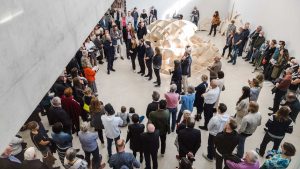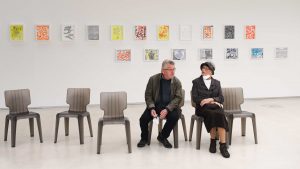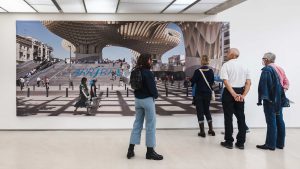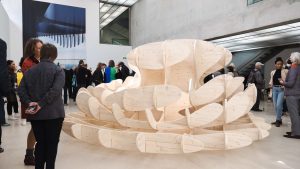Our façade intervention of a nondescript nineteen-seventies-era office building in Stuttgart from dingy white to bold graphic patterns, reflects its current repurpose as an innovation lab. It is now a physical home for a group of startup companies working in the green tech sector, operating under the “umbrella” name 1886Ventures. The applied data protection pattern on the outside provides a symbolic location for these innovations that announces the new by referring to the tactics used to camouflage so-called “test mules,” testbed vehicles in the automotive industry. Drawing attention and keeping secrets are kept in an ambivalent balance.
Project:
SW35
Year:
2021
Location:
Stuttgart, Germany
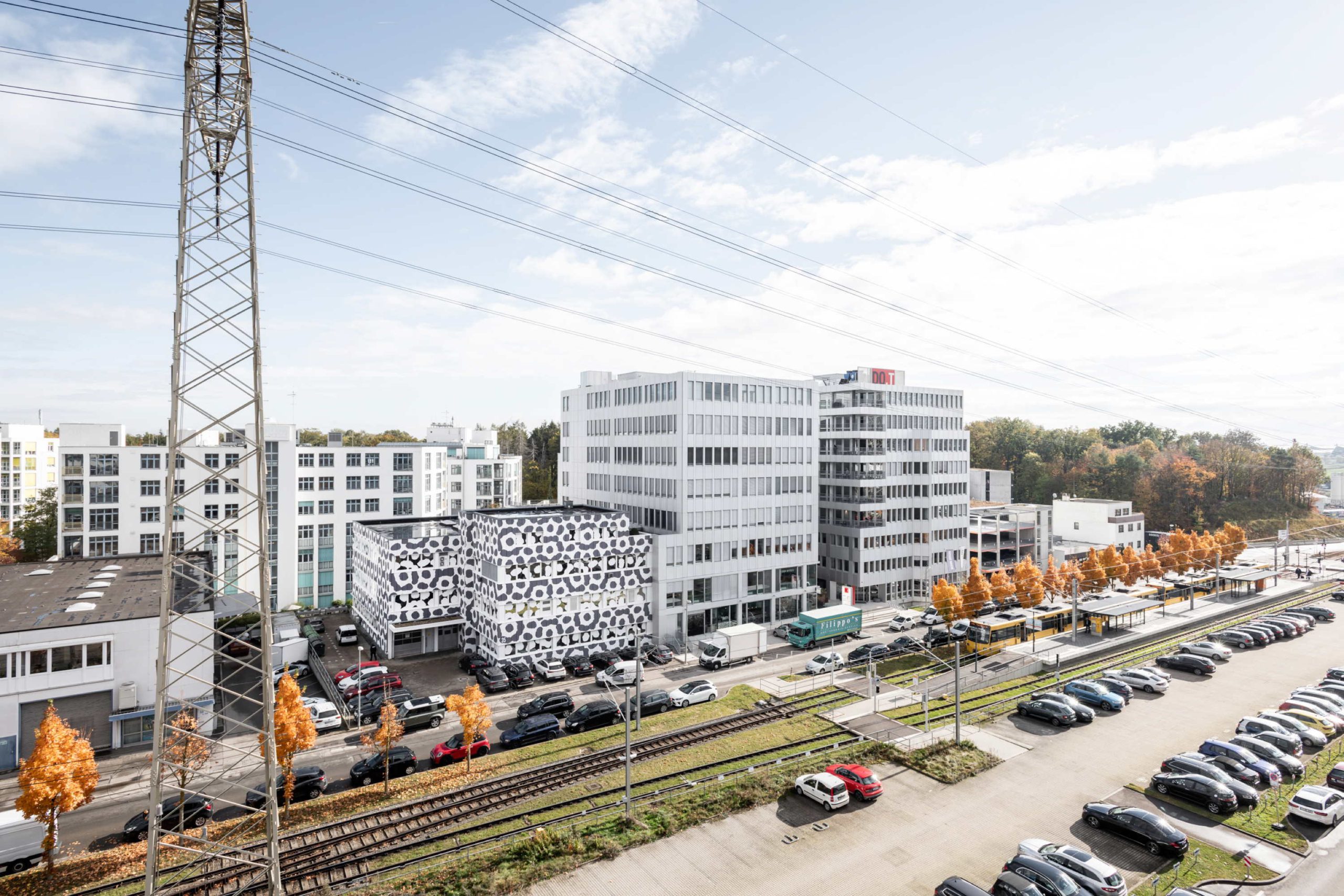
The following is taken from Kimberly Bradley’s essay
“SW35: Musings on a Building.”
To request a copy of the complete text and a full set of press images, please use the contact information below.
“Dark gray-and-white marks splash across SW35’s facade, creating an eye-catcher in a bleak industrial zone. At first the repeating, organic-looking blobs appear to be a stylized leopard print, the kind popular on clothing for blurring contours and attracting attention, but not quite: they are instead riffs on one of the data-protection patterns that line envelopes, meant to shroud or camouflage sensitive information inside—PINS, confidential correspondence, and the like. This time these marks appear not as tiny squiggles but rather as bold supergraphics, as large as a human being, on the building’s exterior.
Painted on the facade where it’s metal, appearing as sticky film where it’s glass, J.MAYER.H’s found graphics provide a visual pop. The office’s founder Jürgen Mayer H. has been collecting data-protection patterns for more than 25 years, incorporating variations on them not only onto architectural facades (ironically, a facade in architecture is known as a “building envelope”—a connection that in this case gains extra meaning), but also sculptures, art objects, carpets, even installations in museums like the Berlinische Galerie in Berlin, the MoMA in New York, the SFMOMA in San Francisco, and biennials in Venice, São Paolo, and Shenzhen. He sees their mashups of blurred letters, numbers, and shapes as a “primordial soup” of signifiers; rogue, unregulated, and individual.”
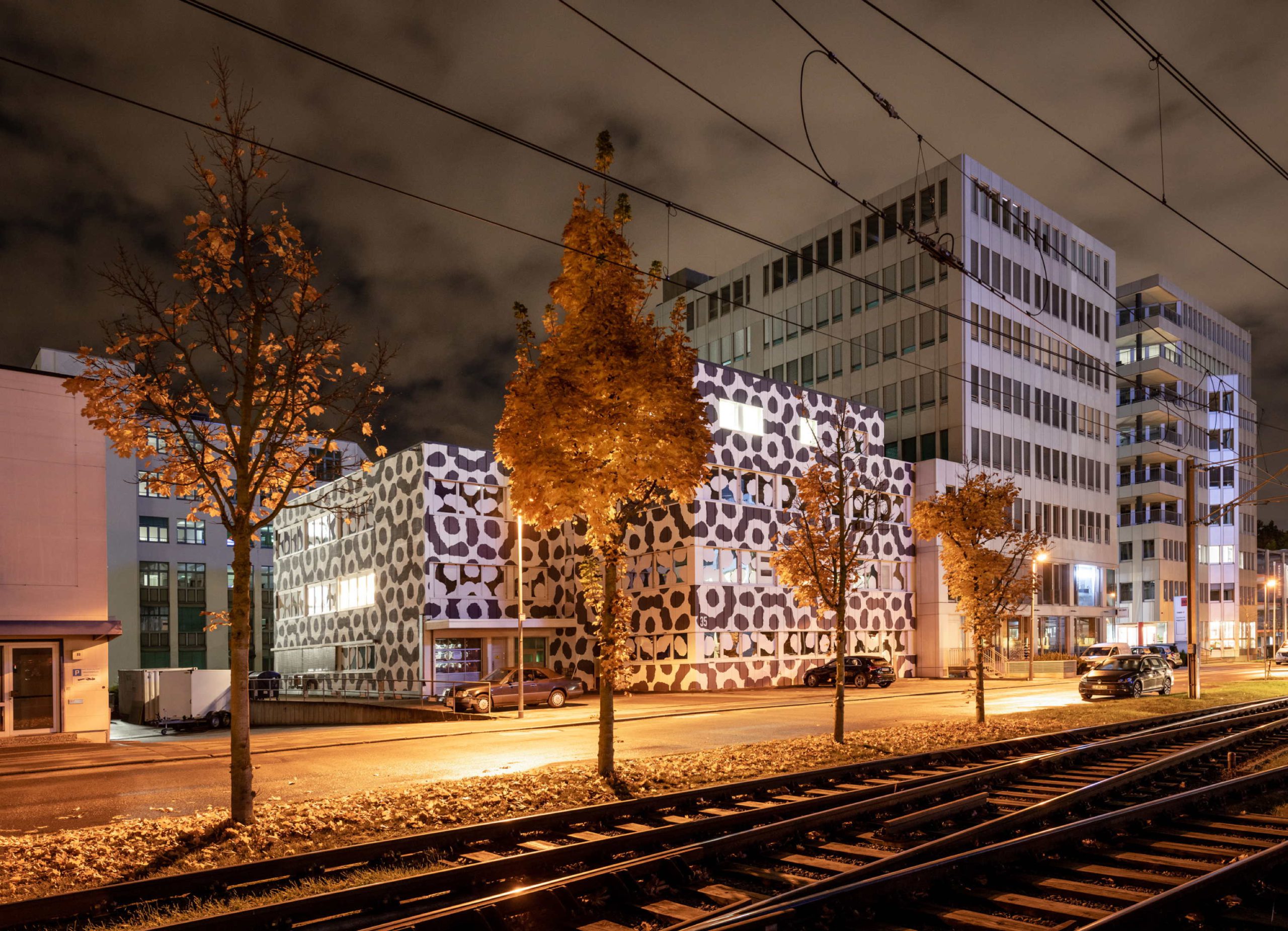
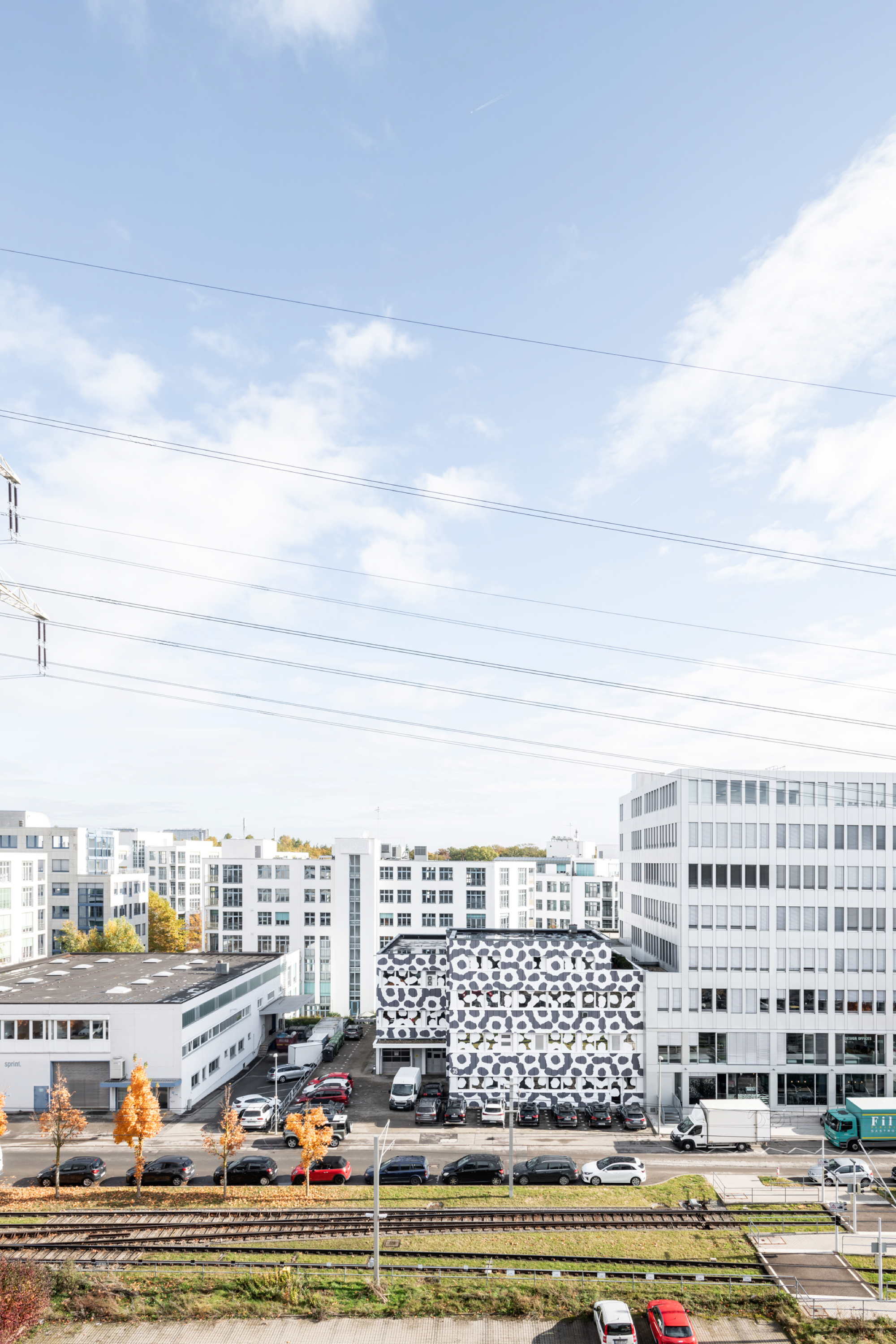
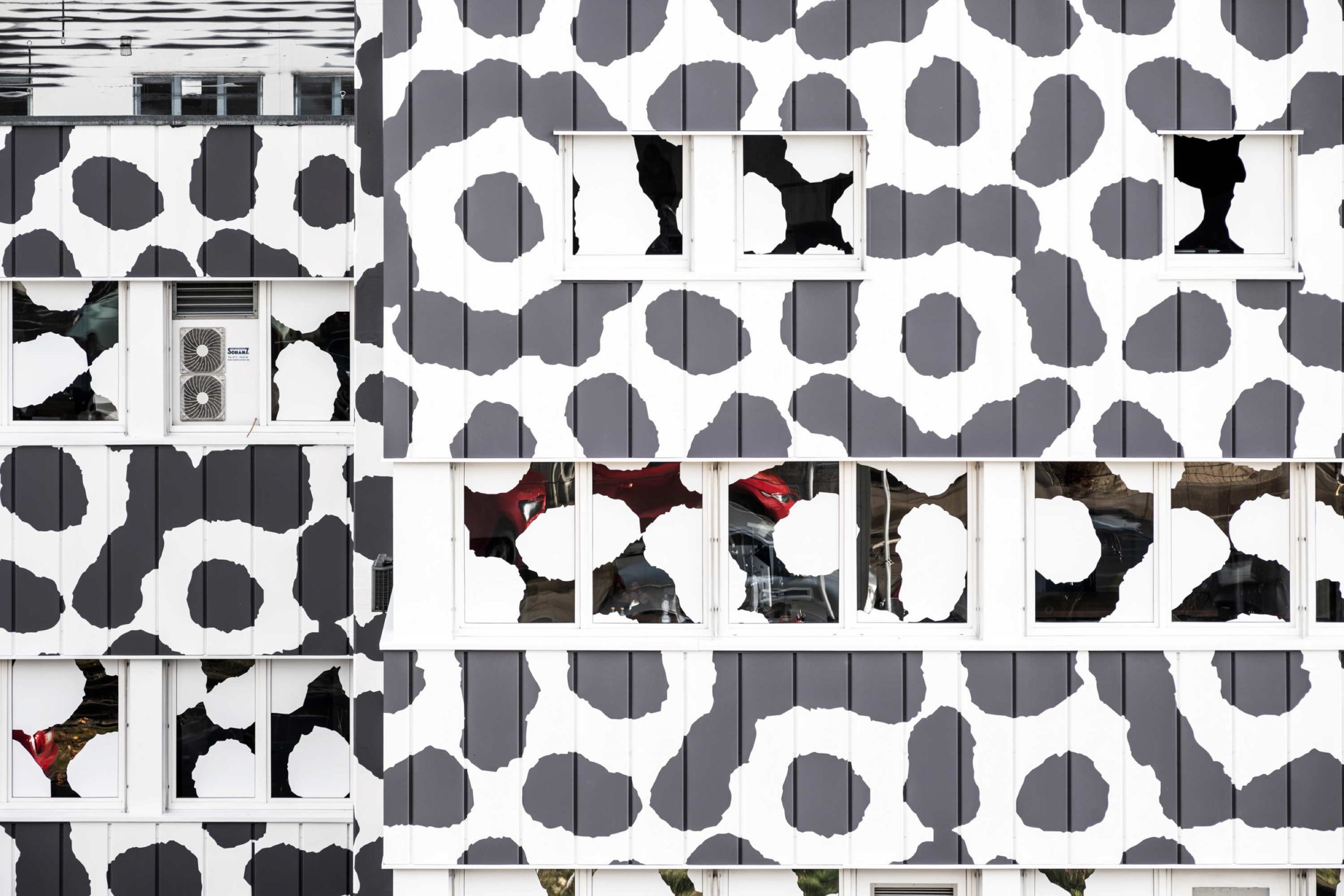
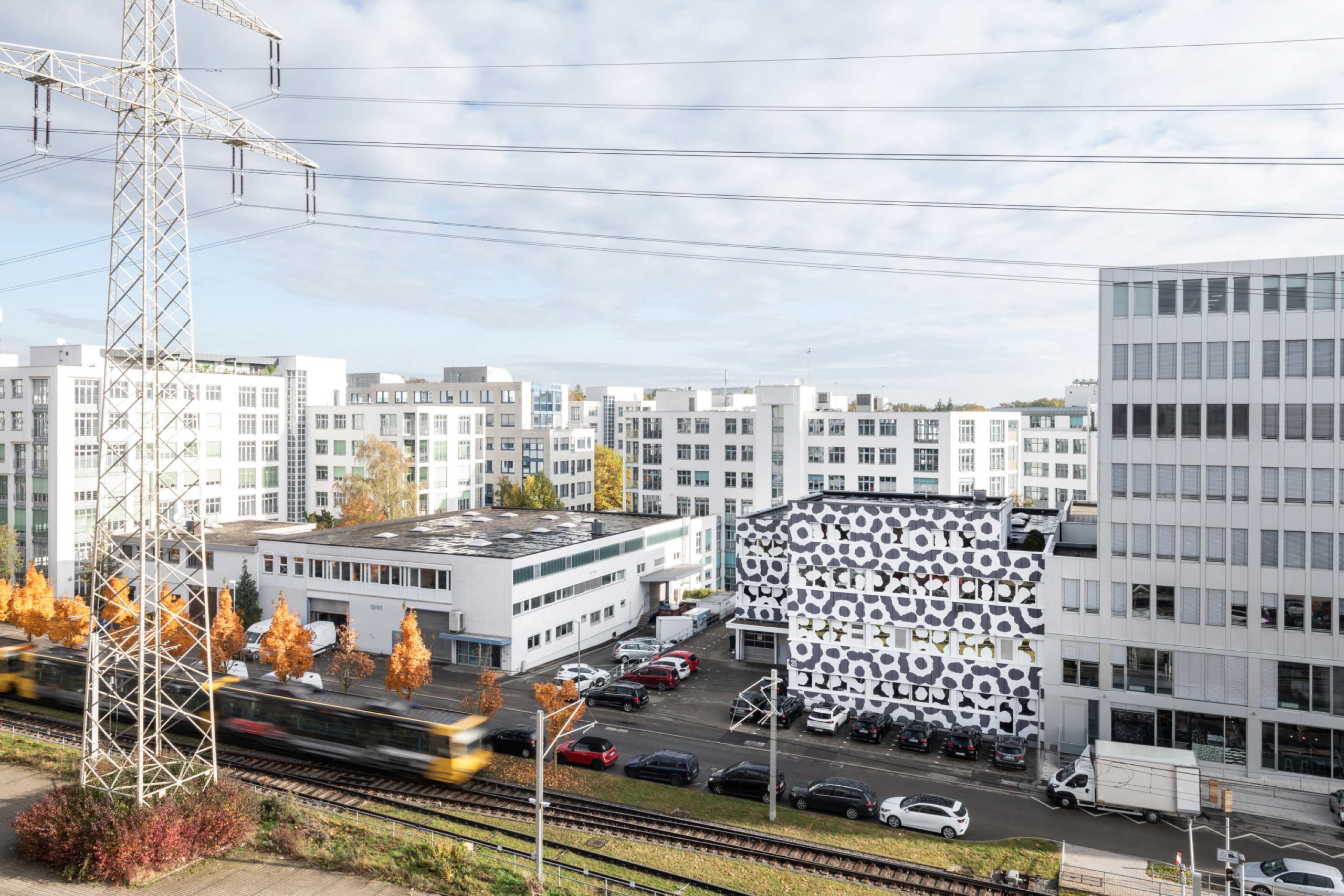
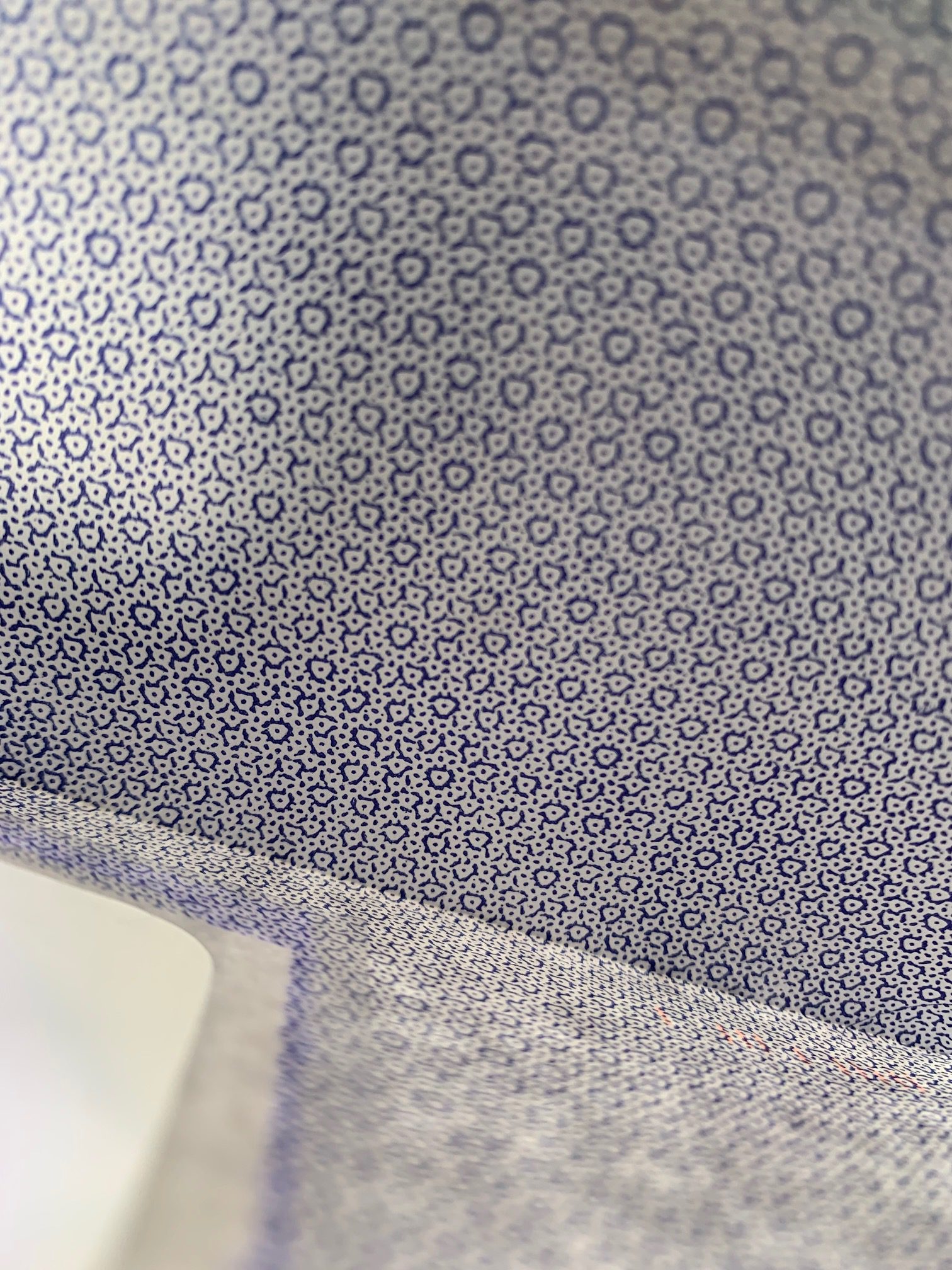
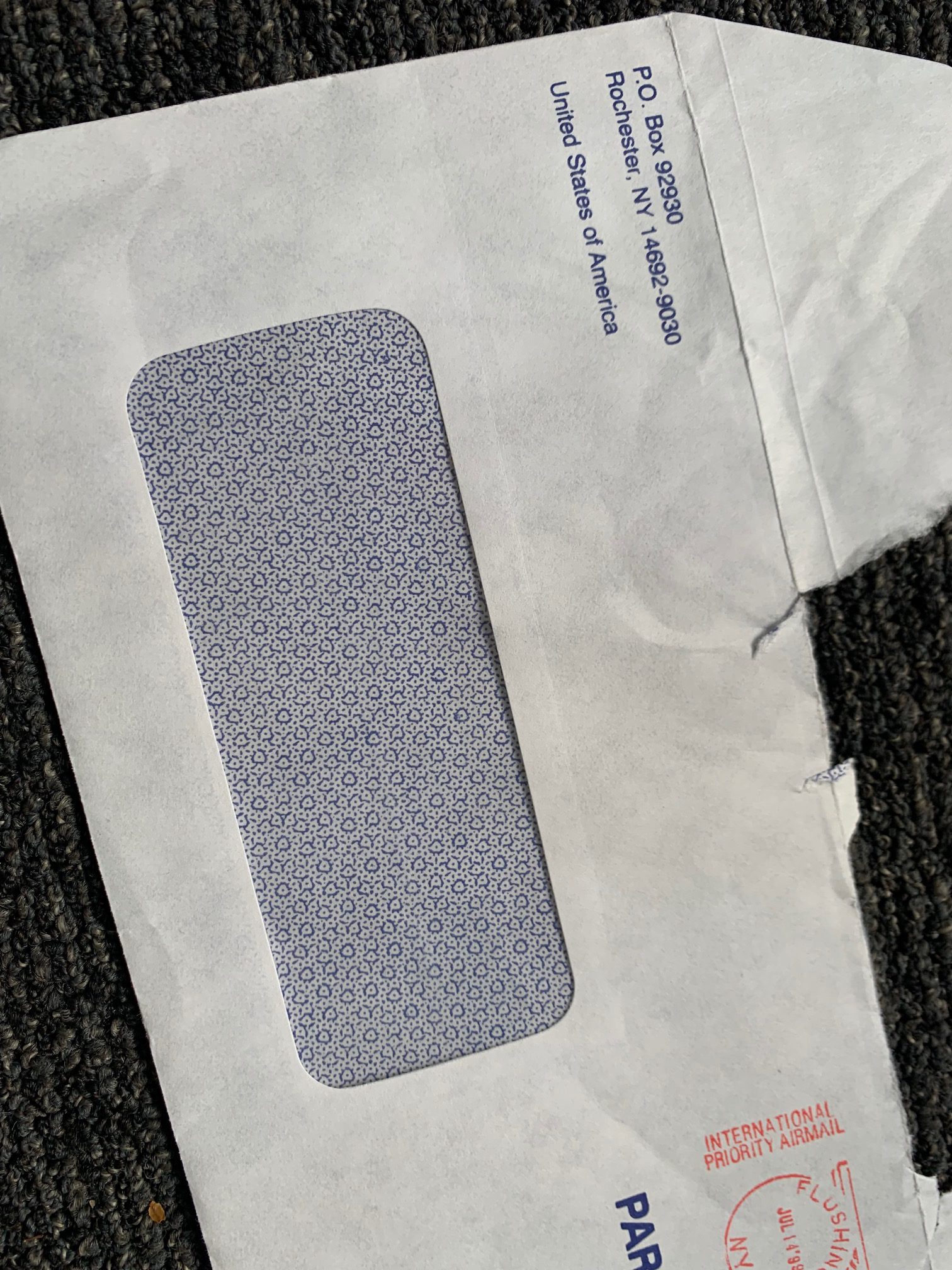
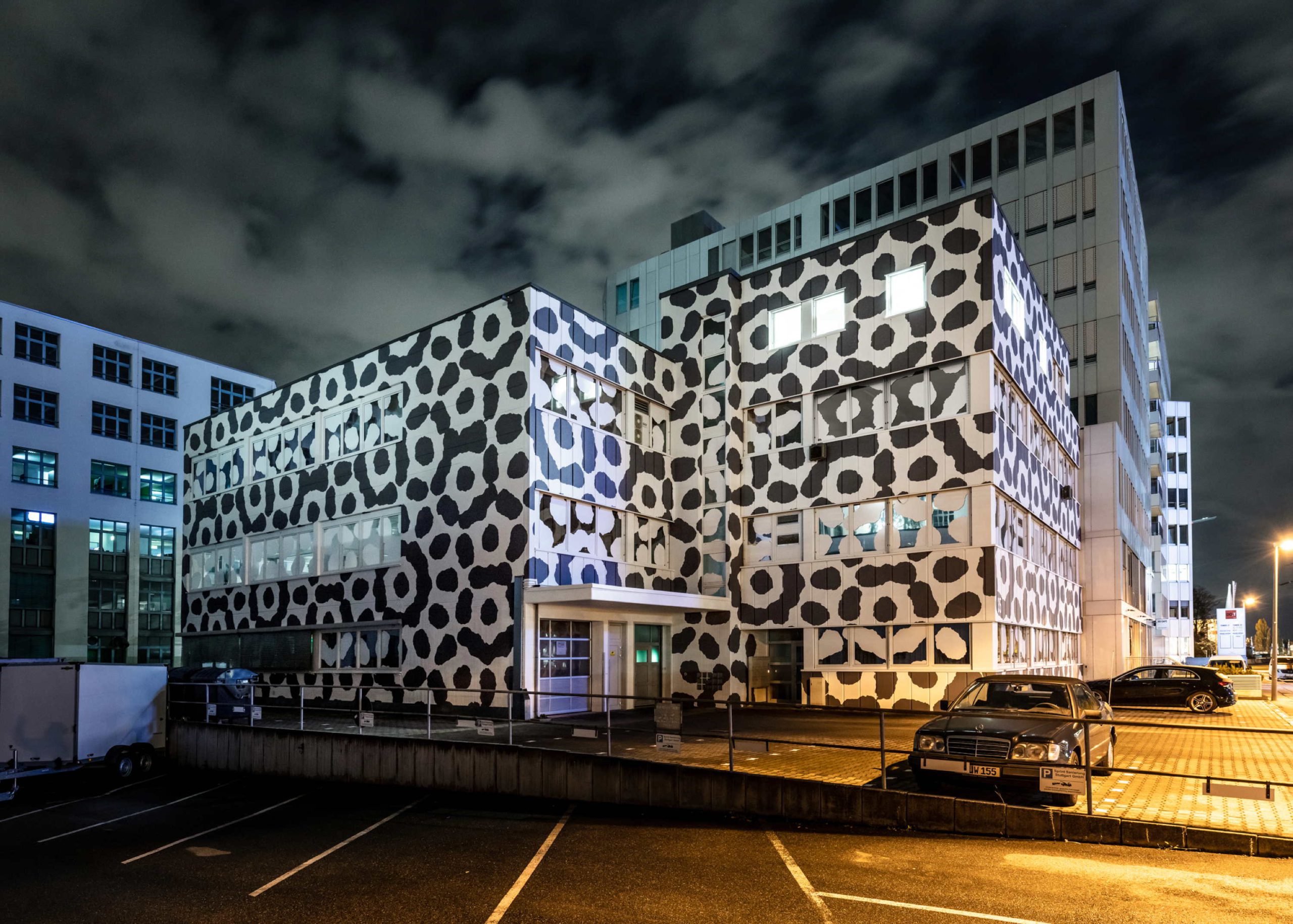
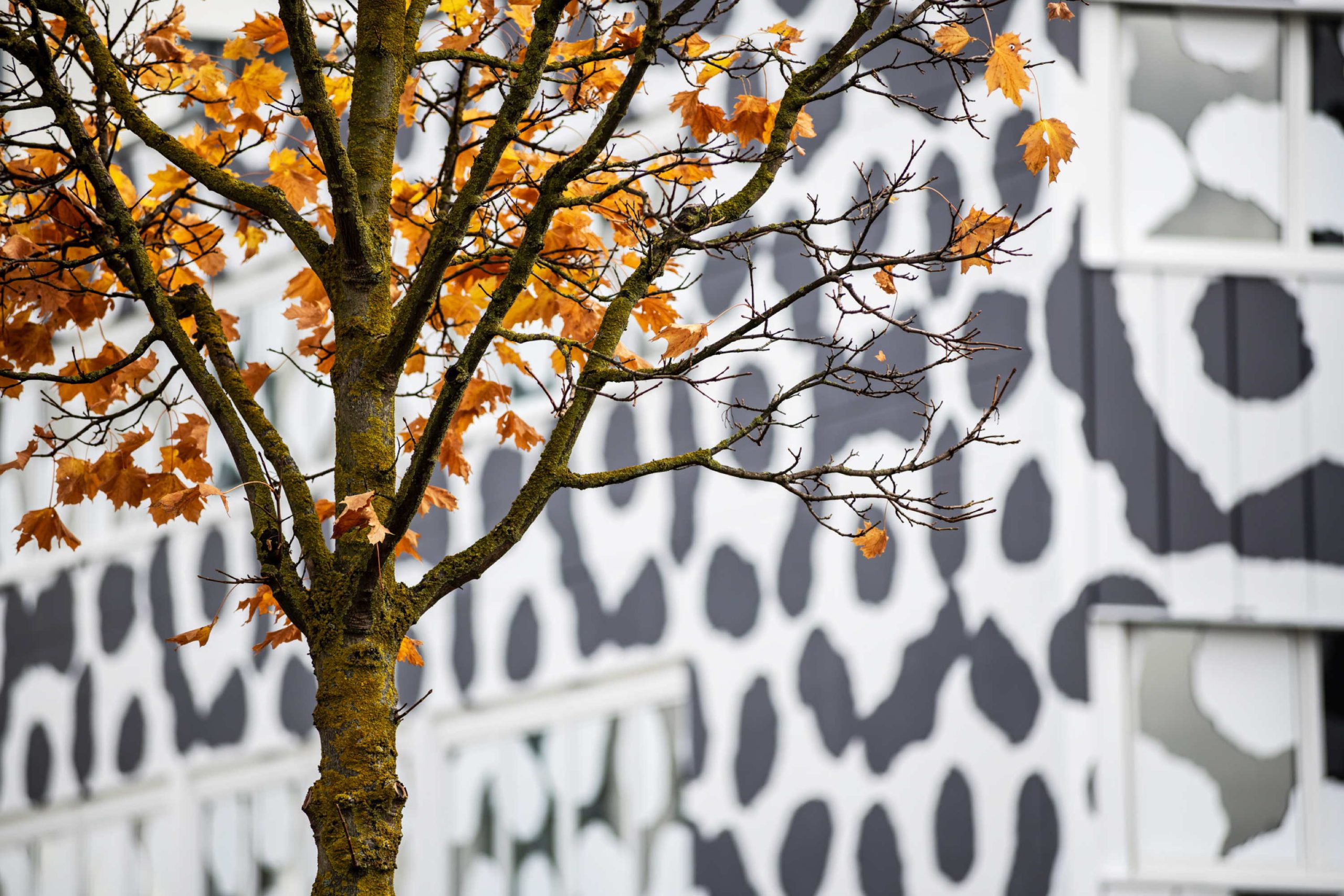
Client:
RB-Real Estate GmbH / Ulrich Dietz
Partner in charge:
Jürgen Mayer H.
Hans Schneider
Team:
Noah Ehlers
Paul Rindt
Collaborations:
Architect on Site: Heike Schaefer, Architect, Stuttgart
Lighting: Lichttransfer / Katrin Soencksen, Berlin
Photographer:
David Franck
